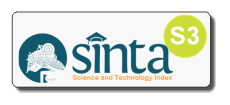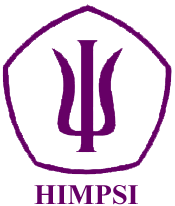The Role of Unwanted Celibacy in Predicting Attitudes Towards Sexual Aggression in Single Men
Abstract
Full Text:
PDFReferences
Andrighetto, L., Riva, P., & Gabbiadini, A. (2019). Lonely Hearts and Angry Minds: Online Dating Rejection Increases Male (but Not Female) Hostility. Aggressive Behavior, 45(5), 571–581. https://doi.org/10.1002/ab.21852
Apostolou, M., Matogian, I., Koskeridou, G., Shialos, M., & Georgiadou, P. (2019). The Price of Singlehood: Assessing the Impact of Involuntary Singlehood on Emotions and Life Satisfaction. Evolutionary Psychological Science, 5(4), 416–425. https://doi.org/10.1007/s40806-019-00199-9
Apostolou, M., Papadopoulou, I., & Georgiadou, P. (2019). Are People Single by Choice? Involuntary Singlehood in an Evolutionary Perspective. Evolutionary Psychological Science, 5(1), 98–103. https://doi.org/10.1007/s40806-018-0169-1
Beaton, D. E., Bombardier, C., Guillemin, F., & Ferraz, M. B. (2000). Guidelines for the Process of Cross-Cultural Adaptation of Self-Report Measures. Spine, 25(24), 3186.
Berkowitz, L. (1989). Frustration-Aggression Hypothesis: Examination and Reformulation. Psychological Bulletin, 106(1), 59–73. https://doi.org/10.1037/0033-2909.106.1.59
Costello, W., Rolon, V., Thomas, A. G., & Schmitt, D. P. (2024). The Mating Psychology of Incels (Involuntary Celibates): Misfortunes, Misperceptions, and Misrepresentations. The Journal of Sex Research, 61(7), 989–1000. https://doi.org/10.1080/00224499.2023.2248096
Dollard, J., Miller, N. E., Doob, L. W., Mowrer, O. H., & Sears, R. R. (1939). Frustration and Aggression. New Haven: Yale University Press.
Ellenberg, M., Speckhard, A., & Kruglanski, A. W. (2024). Beyond Violent Extremism: A 3N Perspective of Inceldom. Psychology of Men & Masculinities, 25(3), 290–299. https://doi.org/10.1037/men0000439
Flood, M., & Pease, B. (2009). Factors Influencing Attitudes to Violence Against Women. Trauma, Violence, & Abuse, 10(2), 125–142. https://doi.org/10.1177/1524838009334131
Gerger, H., Kley, H., Bohner, G., & Siebler, F. (2007). The Acceptance of Modern Myths About Sexual Aggression Scale: Development and Validation in German and English. Aggressive Behavior, 33(5), 422–440. https://doi.org/10.1002/ab.20195
Götz, F. M., Gosling, S. D., & Rentfrow, P. J. (2022). Small Effects: The Indispensable Foundation for a Cumulative Psychological Science. Perspectives on Psychological Science, 17(1), 205–215. https://doi.org/10.1177/1745691620984483
Grunau, K., Bieselt, H. E., Gul, P., & Kupfer, T. R. (2022). Unwanted Celibacy Is Associated With Misogynistic Attitudes Even After Controlling for Personality. Personality and Individual Differences, 199, 111860. https://doi.org/10.1016/j.paid.2022.111860
Halpin, M., Richard, N., Preston, K., Gosse, M., & Maguire, F. (2023). Men Who Hate Women: The Misogyny of Involuntarily Celibate Men. New Media & Society, 14614448231176777. https://doi.org/10.1177/14614448231176777
Himawan, K. K., Bambling, M., & Edirippulige, S. (2018). What Does It Mean to Be Single in Indonesia? Religiosity, Social Stigma, and Marital Status Among Never-Married Indonesian Adults. Sage Open, 8(3), 2158244018803132. https://doi.org/10.1177/2158244018803132
Himawan, K. K., Bambling, M., & Edirippulige, S. (2022). Motivations and Reactions to Social Undervaluation of Single People in Married Society: An Indonesian Perspective. Families, Relationships and Societies, 11(4), 569–589. https://doi.org/10.1332/204674321X16316940998258
Himawan, K. K., Bambling, M., Underwood, M., & Edirippulige, S. (2024). In the Absence of Marriage: Social and Religious-Based Relationships As Alternatives to Marriage for Never-Married Adults in Indonesia. Journal of Spirituality in Mental Health, 26(4), 396–420. https://doi.org/10.1080/19349637.2023.2253443
Hofstede, G. (2001). Culture’s Consequences: Comparing Values, Behaviors, Institutions and Organizations Across Nations. Thousand Oaks: Sage Publications.
Komnas Perempuan. (2023). CATAHU 2023: Kekerasan terhadap Perempuan di Ranah Publik dan Negara: Minimnya Perlindungan dan Pemulihan [Annual report]. Jakarta: Komisi Nasional Anti Kekerasan terhadap Perempuan. Retrieved from https://komnasperempuan.go.id/catatan-tahunan-detail/catahu2023-kekerasan-terhadap-perempuan-di-ranah-publik-dan-negara-minimnya-perlindungan-dan-pemulihan
Kruglanski, A. W., Ellenberg, M., Szumowska, E., Molinario, E., Speckhard, A., Leander, N. P., … Bushman, B. J. (2023). Frustration–Aggression Hypothesis Reconsidered: The Role of Significance Quest. Aggressive Behavior, 49(5), 445–468. https://doi.org/10.1002/ab.22092
Maruf, M. (2023, June 21). Jumlah Gen Z Jomblo Melonjak, Bonus Demografi RI Terancam! CNBC Indonesia. Retrieved from https://www.cnbcindonesia.com/research/20230620191054-128-447758/jumlah-gen-z-jomblo-melonjak-bonus-demografi-ri-terancam
Moskalenko, S., Kates, N., González, J. F.-G., & Bloom, M. (2022). Predictors of Radical Intentions among Incels: A Survey of 54 Self-identified Incels. Journal of Online Trust and Safety, 1(3), 1–21. https://doi.org/10.54501/jots.v1i3.57
Moyano, N., Monge, F. S., & Freire, J. C. S. (2017). Predictors of Sexual Aggression in Adolescents: Gender Dominance vs. Rape Supportive Attitudes. European Journal of Psychology Applied to Legal Context, 9(1), 25–31. https://doi.org/10.1016/j.ejpal.2016.06.001
O’Donnell, C., & Shor, E. (2022). “This Is a Political Movement, Friend”: Why “Incels” Support Violence. The British Journal of Sociology, 73(2), 336–351. https://doi.org/10.1111/1468-4446.12923
O’Malley, R. L., Holt, K., & Holt, T. J. (2022). An Exploration of the Involuntary Celibate (Incel) Subculture Online. Journal of Interpersonal Violence, 37(7–8), NP4981–NP5008. https://doi.org/10.1177/0886260520959625
Scaptura, M. N., & Boyle, K. M. (2020). Masculinity Threat, “Incel” Traits, and Violent Fantasies Among Heterosexual Men in the United States. Feminist Criminology, 15(3), 278–298. https://doi.org/10.1177/1557085119896415
Sparks, B., Zidenberg, A. M., & Olver, M. E. (2024). An Exploratory Study of Incels’ Dating App Experiences, Mental Health, and Relational Well-Being. The Journal of Sex Research, 61(7), 1001–1012. https://doi.org/10.1080/00224499.2023.2249775
Speckhard, A., Ellenberg, M., Morton, J., & Ash, A. (2021). Involuntary Celibates’ Experiences of and Grievance Over Sexual Exclusion and the Potential Threat of Violence Among Those Active in an Online Incel Forum. Journal of Strategic Security, 14(2), 89–121.
Uz, I. (2015). The Index of Cultural Tightness and Looseness Among 68 Countries. Journal of Cross-Cultural Psychology, 46(3), 319–335. https://doi.org/10.1177/0022022114563611
Ware, J. (2021). Beta Uprising: Is There an Incel Threat to Asia? Counter Terrorist Trends and Analyses, 13(2), 10–15.
Yapp, E. J., & Quayle, E. (2018). A Systematic Review of the Association Between Rape Myth Acceptance and Male-on-Female Sexual Violence. Aggression and Violent Behavior, 41, 1–19. https://doi.org/10.1016/j.avb.2018.05.002
DOI: http://dx.doi.org/10.17977/um023v13i22024p%25p
Refbacks
- There are currently no refbacks.
Copyright (c) 2024 Jurnal Sains Psikologi

This work is licensed under a Creative Commons Attribution 4.0 International License.
Reference Manager :
|
Aliansi:
Plagiarism Checker :
This work is licensed under a Creative Commons Attribution 4.0 International License.



1.png)








